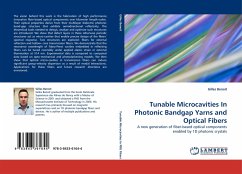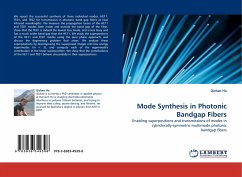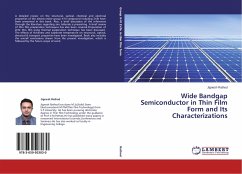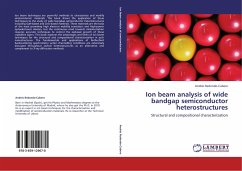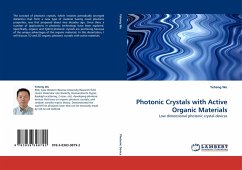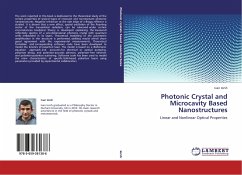
Photonic Bandgap Materials
Architectures for Microfabrication and their Optical Properties
Versandkostenfrei!
Versandfertig in 6-10 Tagen
51,99 €
inkl. MwSt.

PAYBACK Punkte
26 °P sammeln!
Photonic bandgap materials are the photonic analogs of the semi-conductors and have important practical applications. Controlling the fundamental properties of light has become possible thanks to the photonic bandgap which these novel materials possess. This book focuses on the study of the three-dimensional photonic bandgap. The reader will follow the path that started with the rapid progress made on the theoretical front shortly after the introduction of the concept in 1987, progress that led to the fabrication of the early 3D photonic crystals built using conventional tools, with photonic b...
Photonic bandgap materials are the photonic analogs of the semi-conductors and have important practical applications. Controlling the fundamental properties of light has become possible thanks to the photonic bandgap which these novel materials possess. This book focuses on the study of the three-dimensional photonic bandgap. The reader will follow the path that started with the rapid progress made on the theoretical front shortly after the introduction of the concept in 1987, progress that led to the fabrication of the early 3D photonic crystals built using conventional tools, with photonic band-gap in the microwave region, to the first realization of an inverted-opal photonic crystal operating near 1.5 micrometers and beyond. The book instroduces new photonic crystal blueprints as well as a novel technique which can be used for the study of photonic crystals made from materials with a frequency dependent dielectric. The book is self-contained and easily accessible to both physics and engineering students, it contains almost 200 figures and illustrations and a bibliographical section with more than 400 references.



